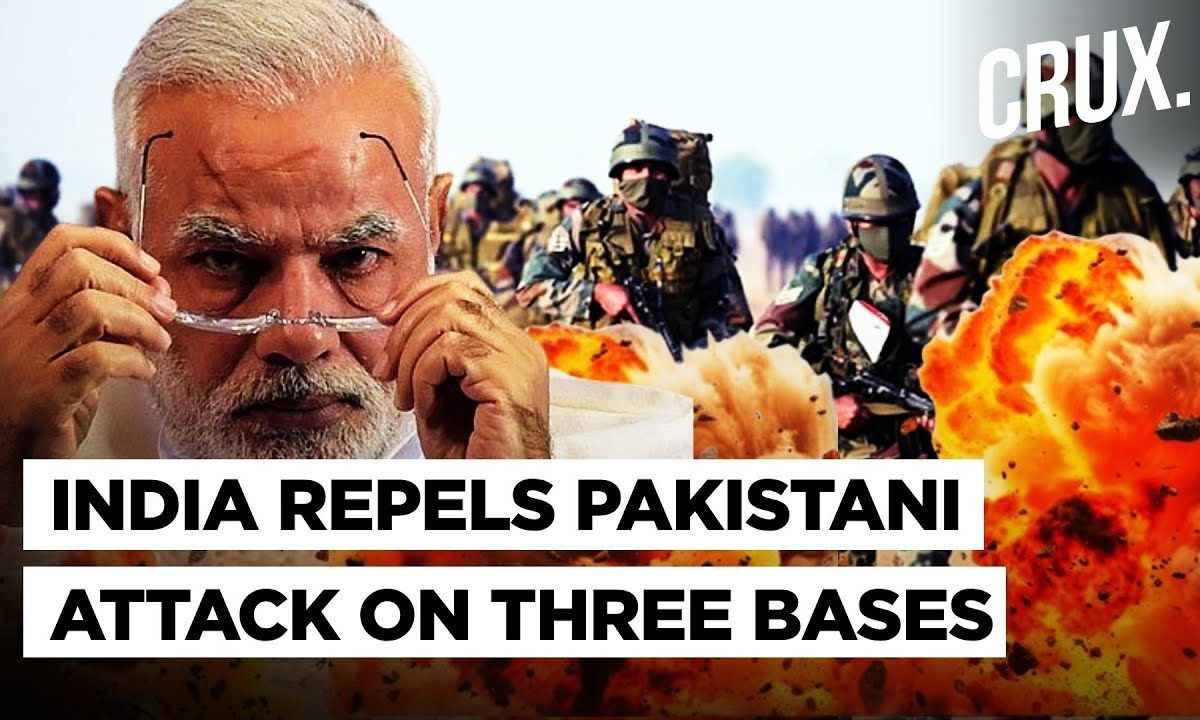

Tensions between India and Pakistan have escalated sharply, with Pakistan reportedly targeting Indian military installations with missiles and drones. India has claimed that these attacks were aimed at military stations in Jammu, Pathankot, and Udhampur, near the international border. While Pakistan's Information Minister has denied these strikes, the Indian Ministry of Defence stated that Pakistan attempted to engage multiple military targets in Northern and Western India, including Srinagar, Jammu, Pathankot, Amritsar, and Bhuj. India claims to have successfully neutralized these threats using its Integrated Counter UAS Grid and Air Defence systems. Debris from the attacks is reportedly being recovered from several locations.
In response to these attacks, India has stated that it targeted air defense radars and systems in Pakistan, reportedly neutralizing an air defense system in Lahore. These actions follow India's strikes on alleged terrorist camps within Pakistan and Pakistan-occupied Kashmir, which were prompted by a terror attack in Pahalgam that resulted in multiple fatalities. Both countries have accused each other of initiating drone attacks, further fueling the escalating conflict.
Amid these heightened tensions, international efforts are underway to de-escalate the situation. US Secretary of State Marco Rubio has spoken with Saudi Foreign Minister Prince Faisal bin Farhan Al Saud to discuss regional security, economic engagement, and ways to de-escalate tensions between India and Pakistan. Rubio has also communicated with national security advisors from both India and Pakistan, urging them to maintain open communication channels and avoid further escalation.
Adding to these diplomatic efforts, Saudi Arabia's Minister of State for Foreign Affairs, Adel al-Jubeir, is scheduled to visit Islamabad on May 9th. This visit is viewed as part of Saudi Arabia's broader initiative to engage with regional players and promote dialogue during this period of heightened military and political strain in South Asia. Al-Jubeir's visit to Pakistan follows discussions with Indian leadership in New Delhi.
The US has urged both India and Pakistan to take immediate steps to de-escalate and engage in dialogue. Similarly, Iranian Foreign Minister Abbas Araghchi, after visiting Pakistan, has called for restraint and dialogue between the two nations.
The recent escalation has resulted in reported casualties on both sides, with at least 48 deaths, including children, since the recent escalation. Blackouts have been reported in several cities in Kashmir and Punjab. Indian Foreign Minister Subrahmanyam Jaishankar has asserted that India's actions have been measured but warned of a firm response to any further escalation.
The situation remains highly volatile, with the international community closely monitoring developments and urging both sides to exercise restraint and seek peaceful resolution through diplomatic channels.